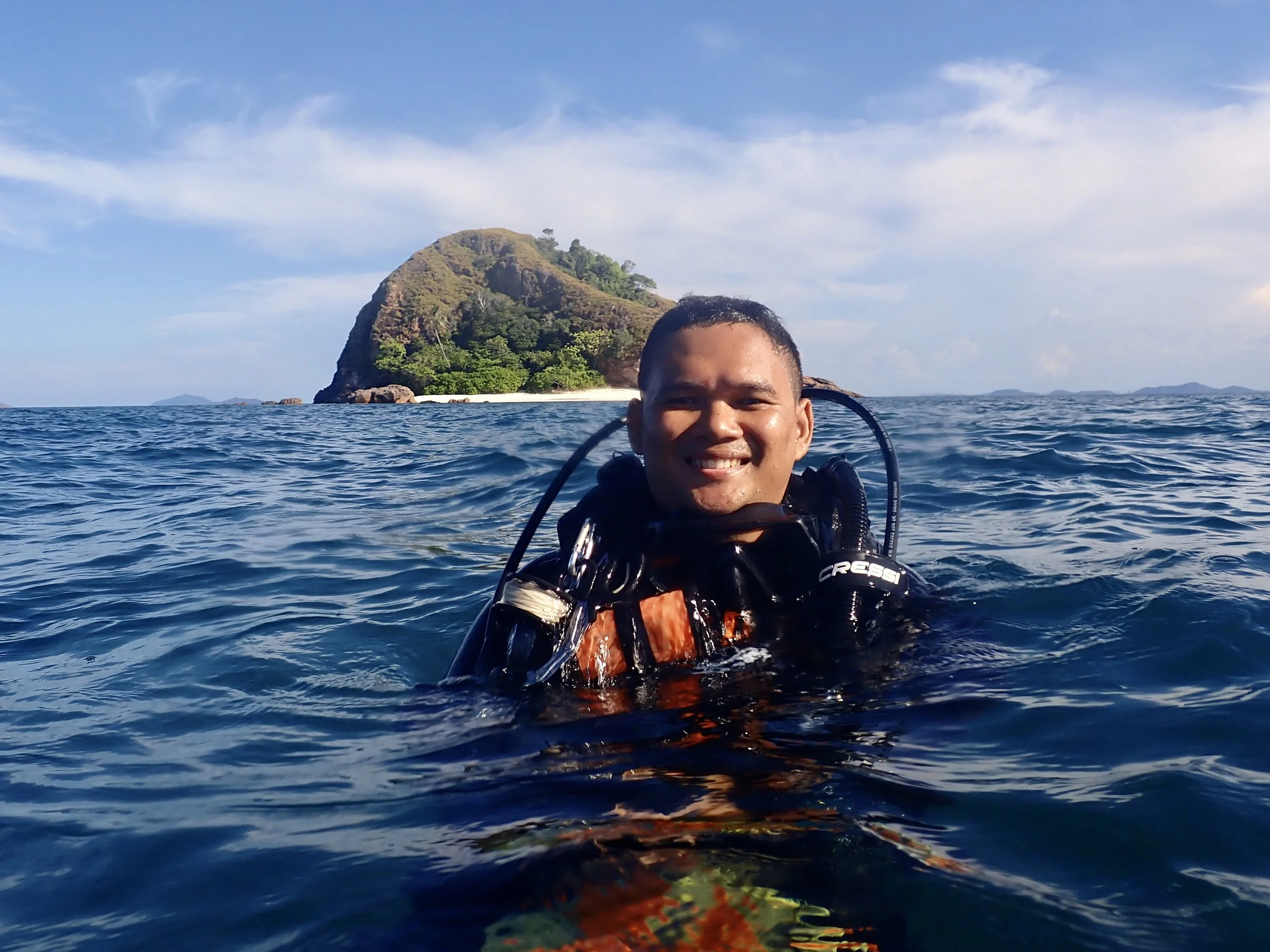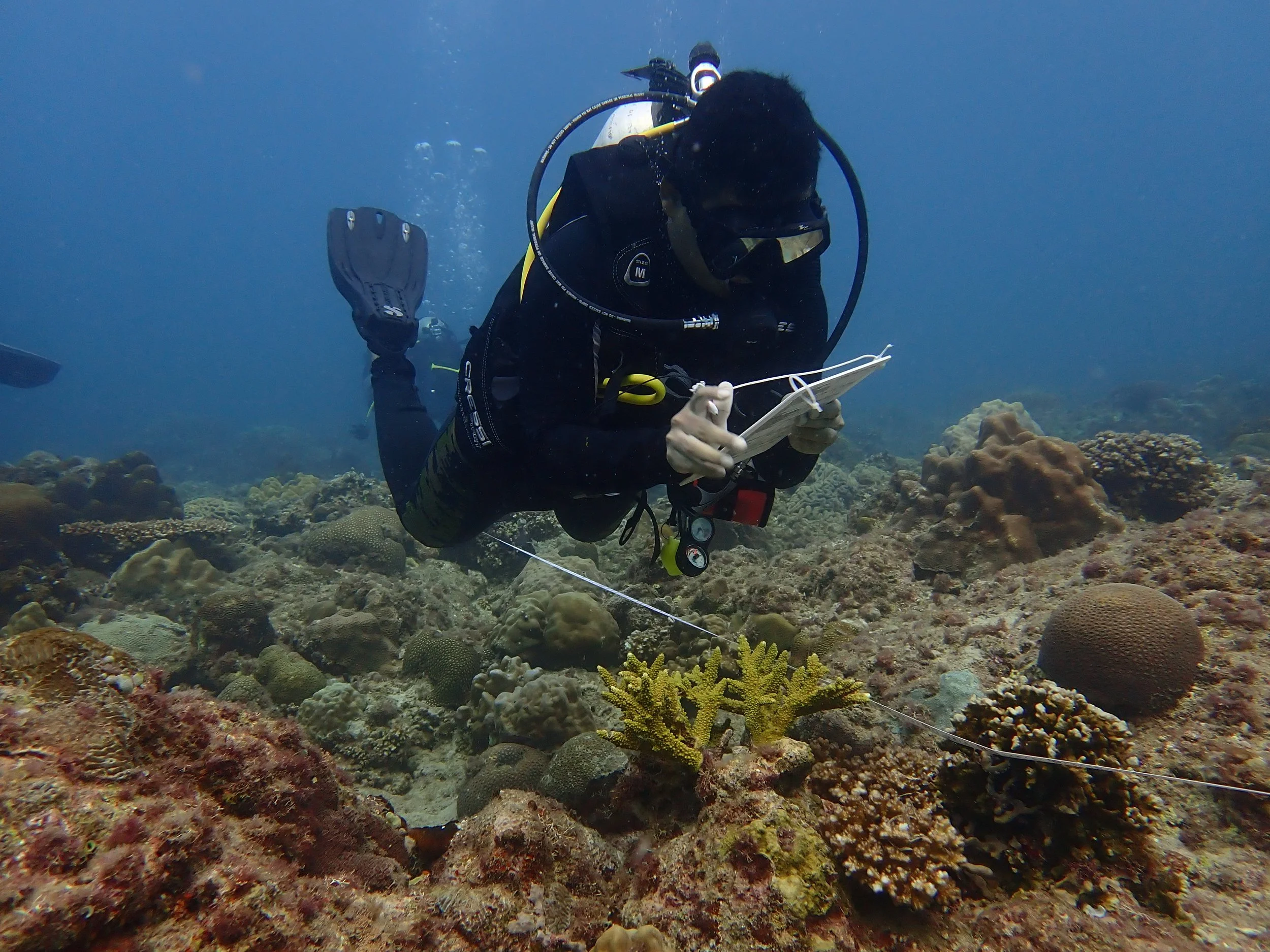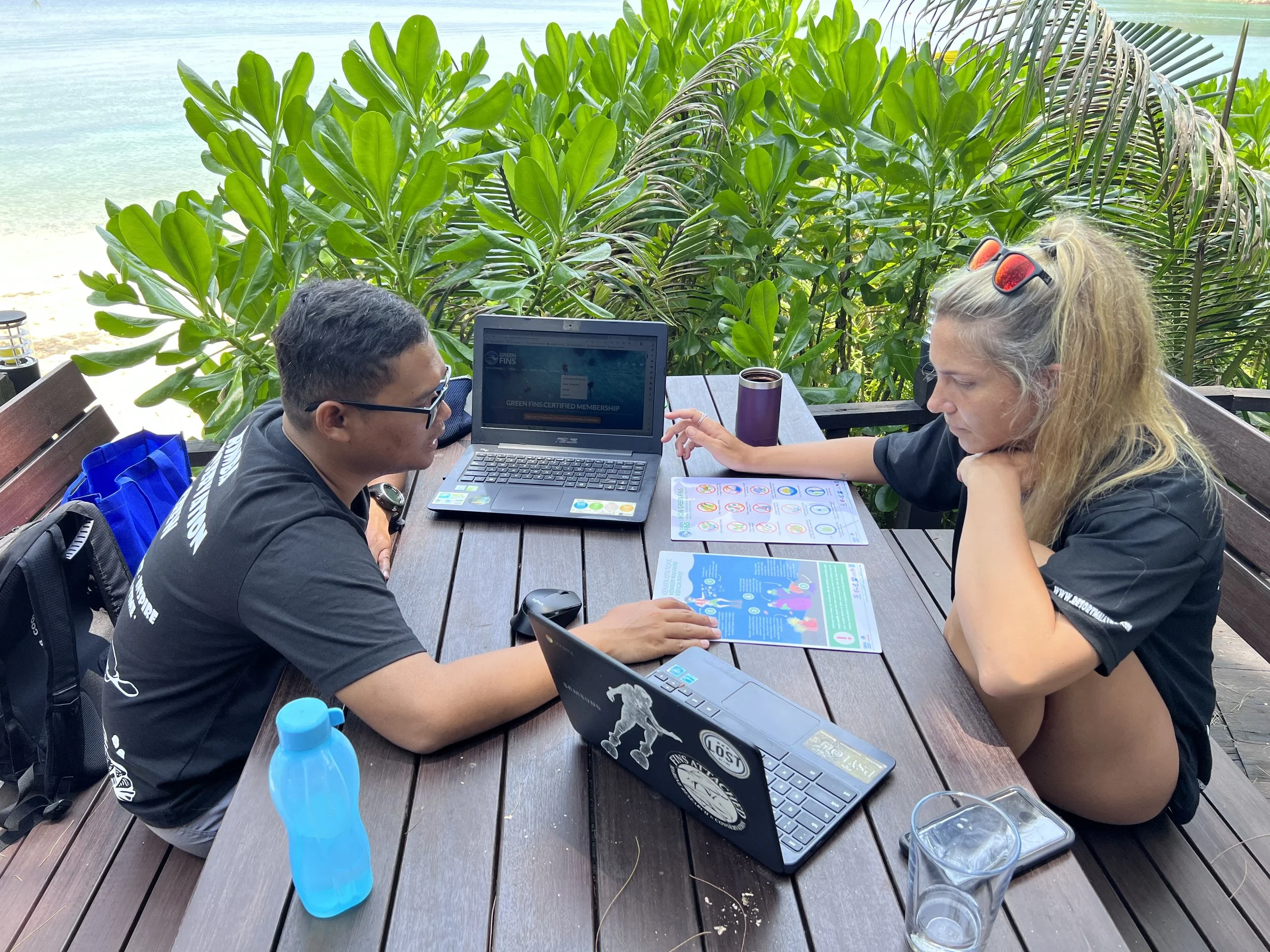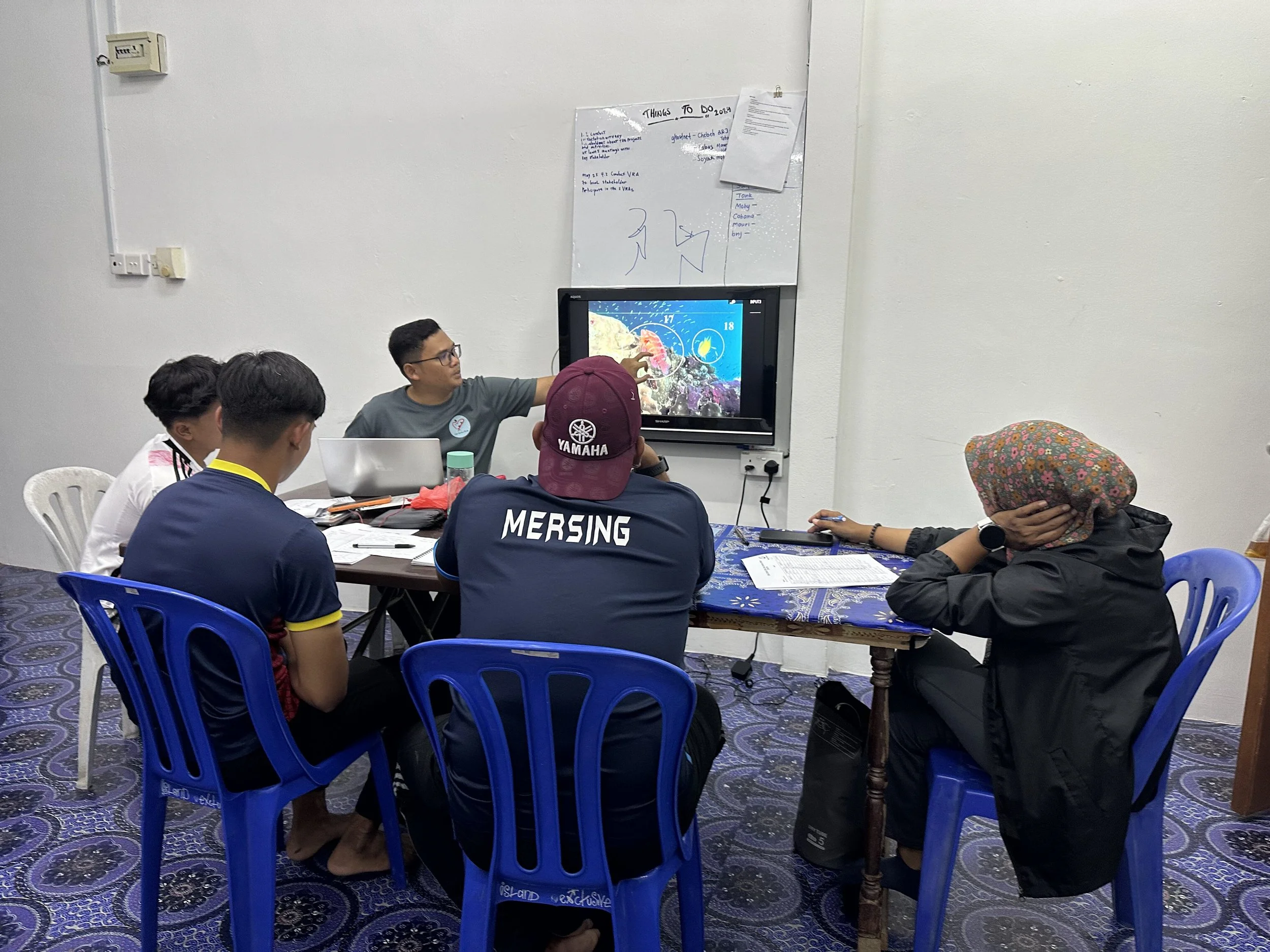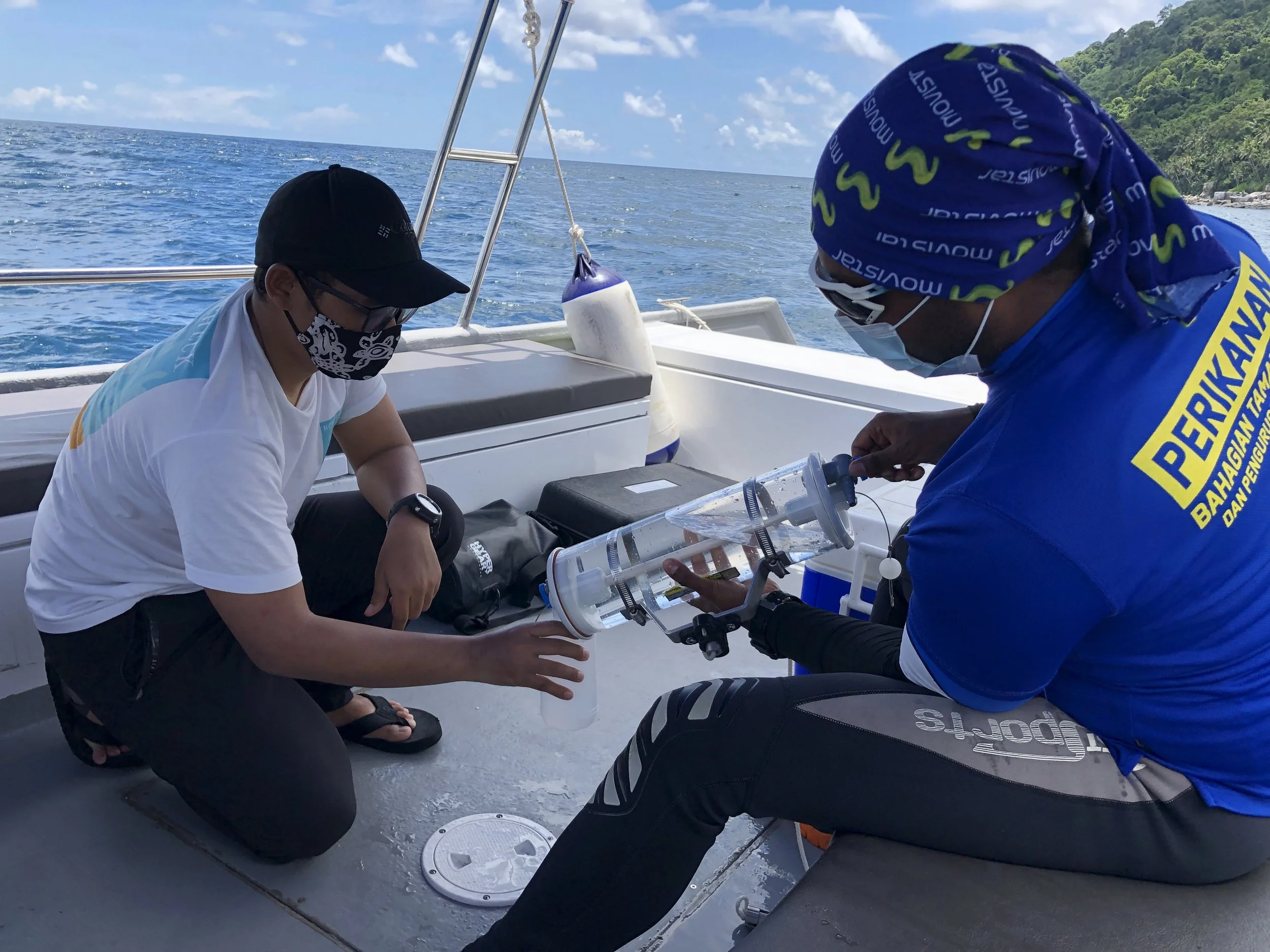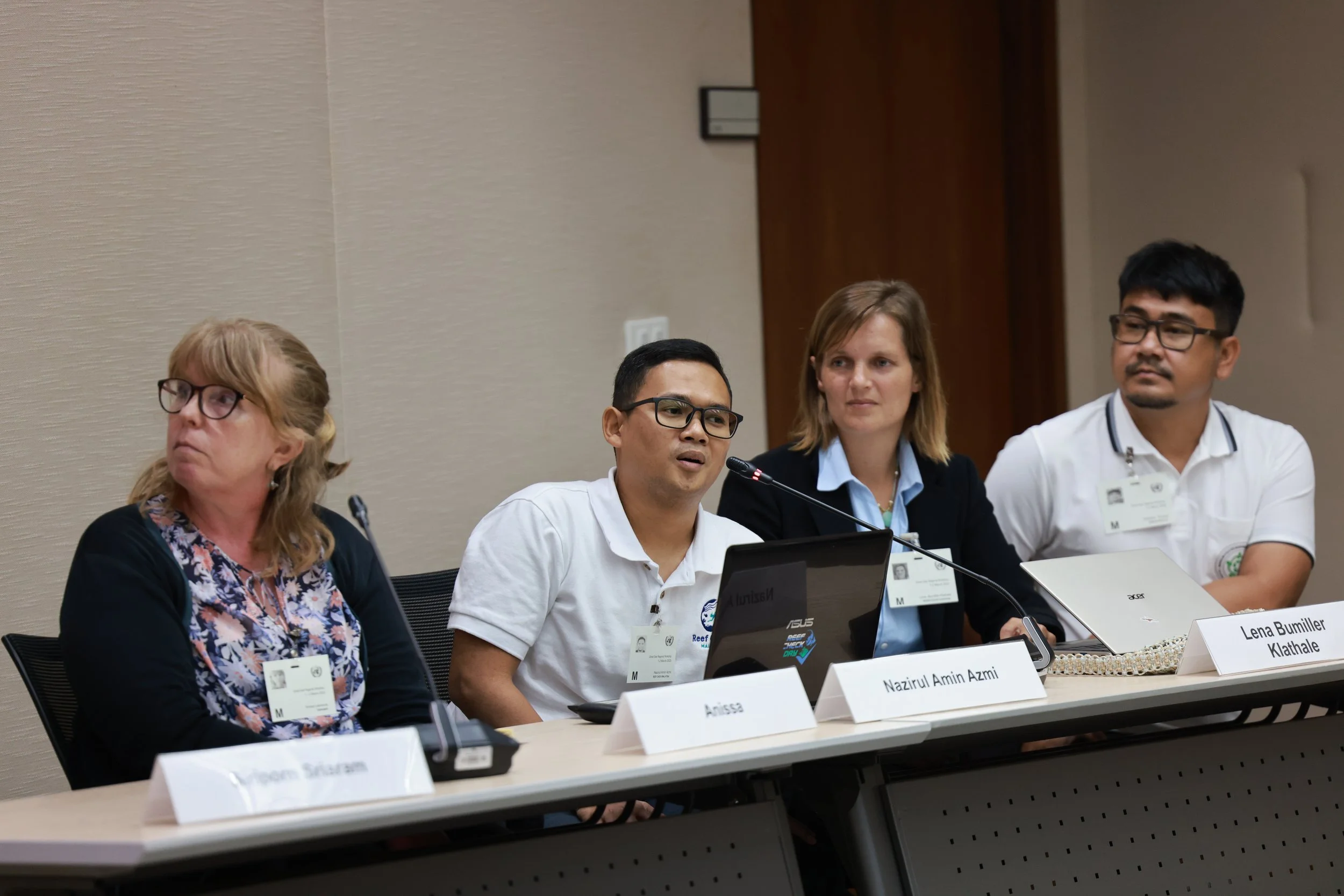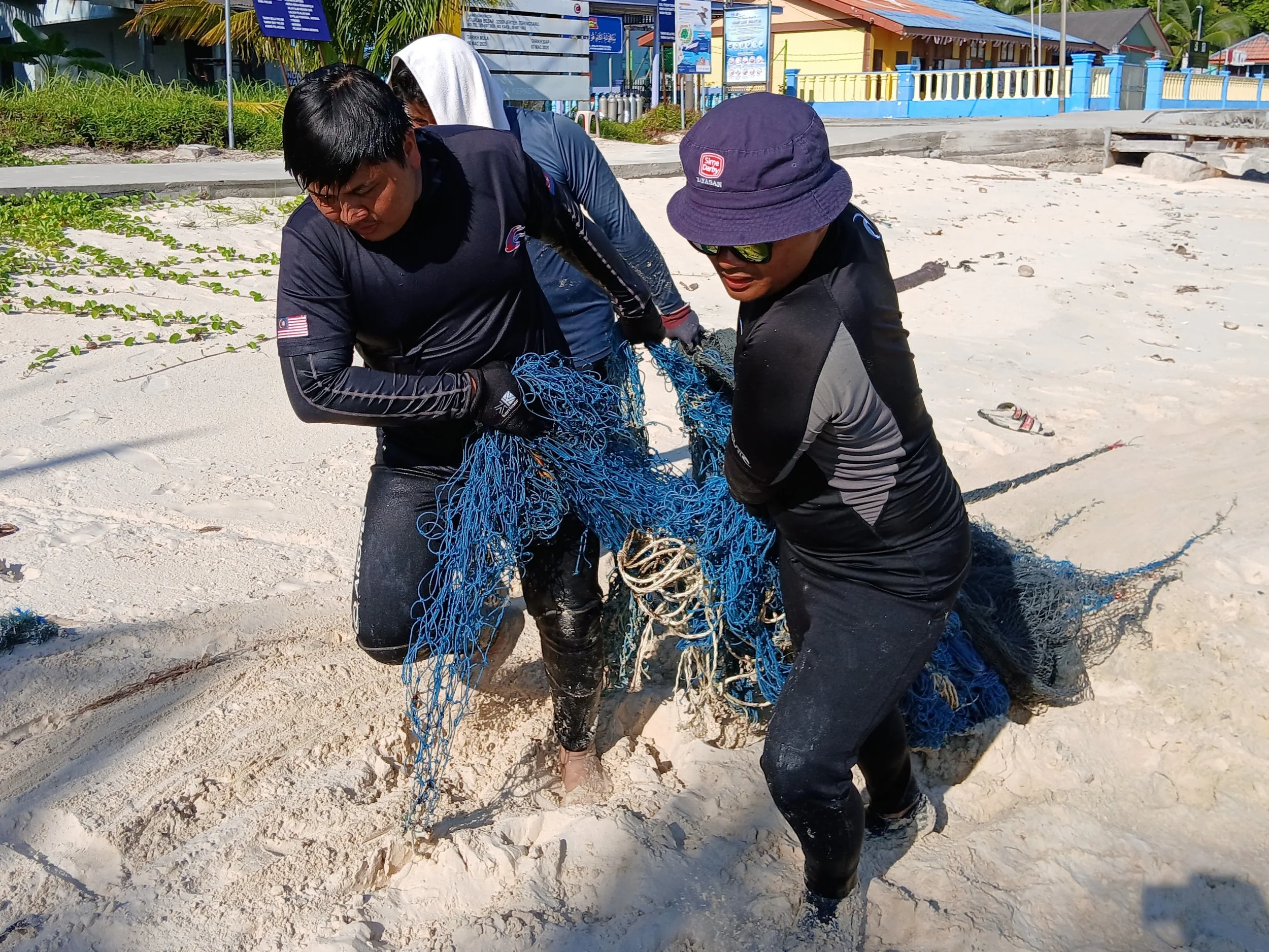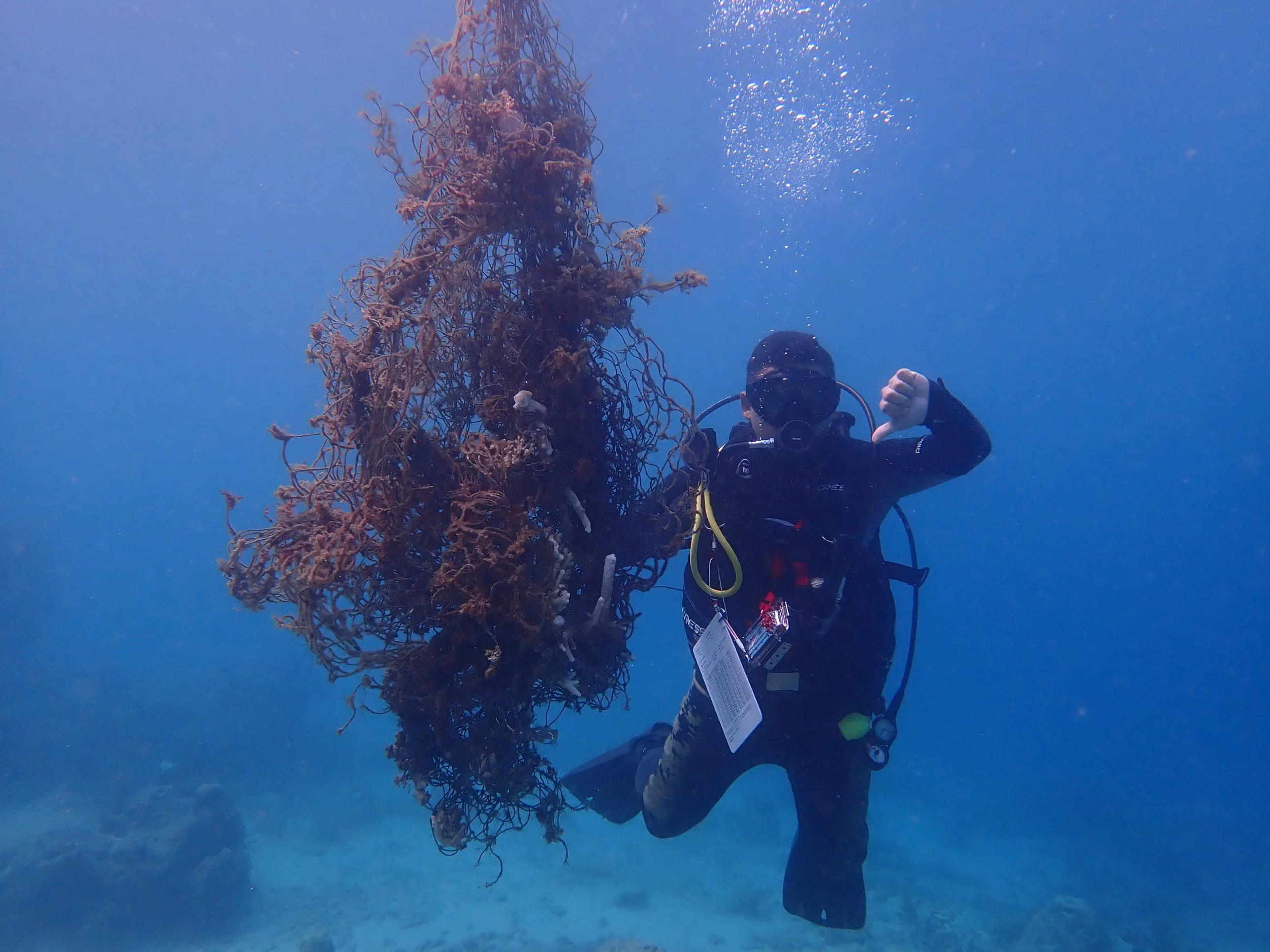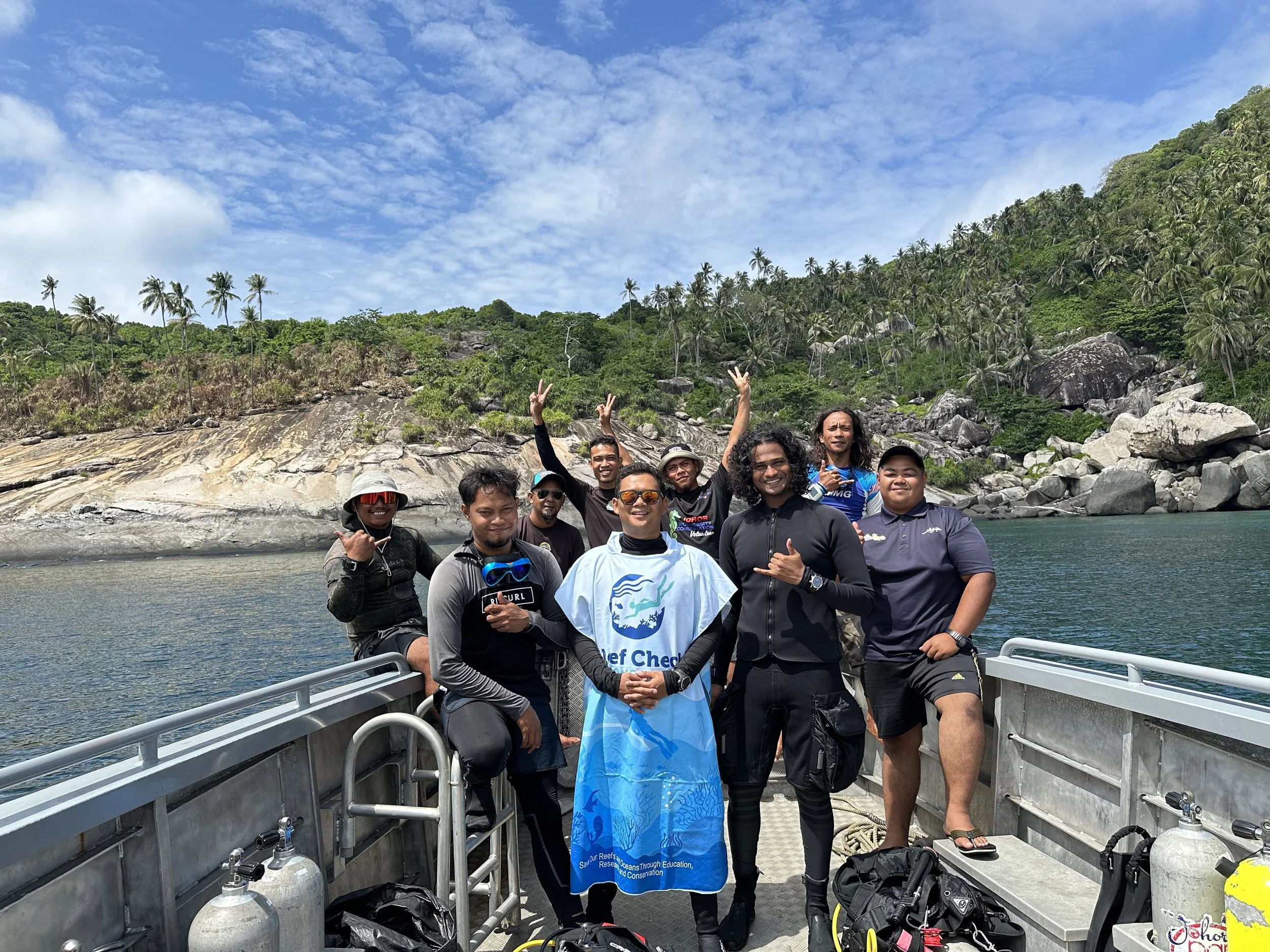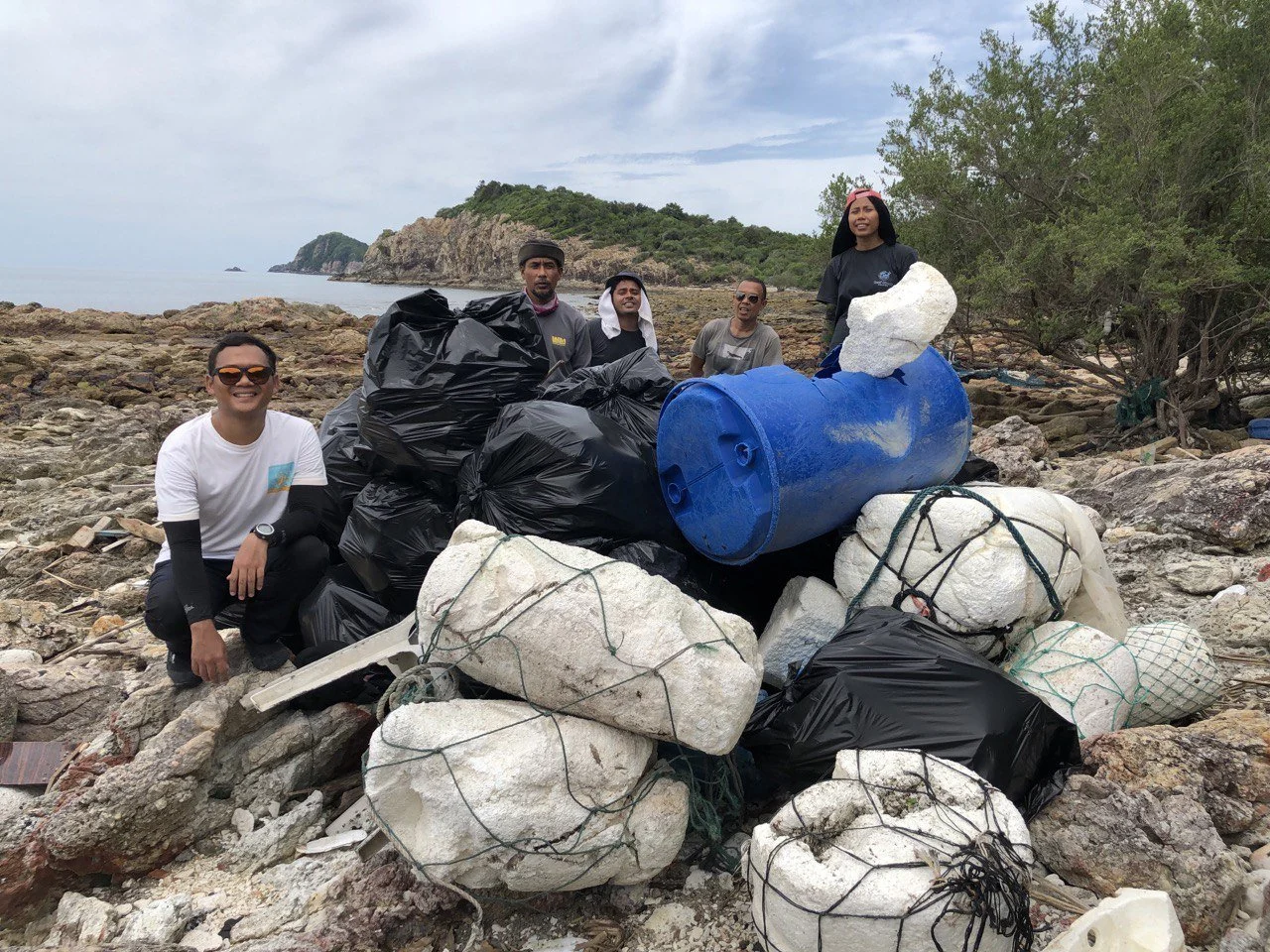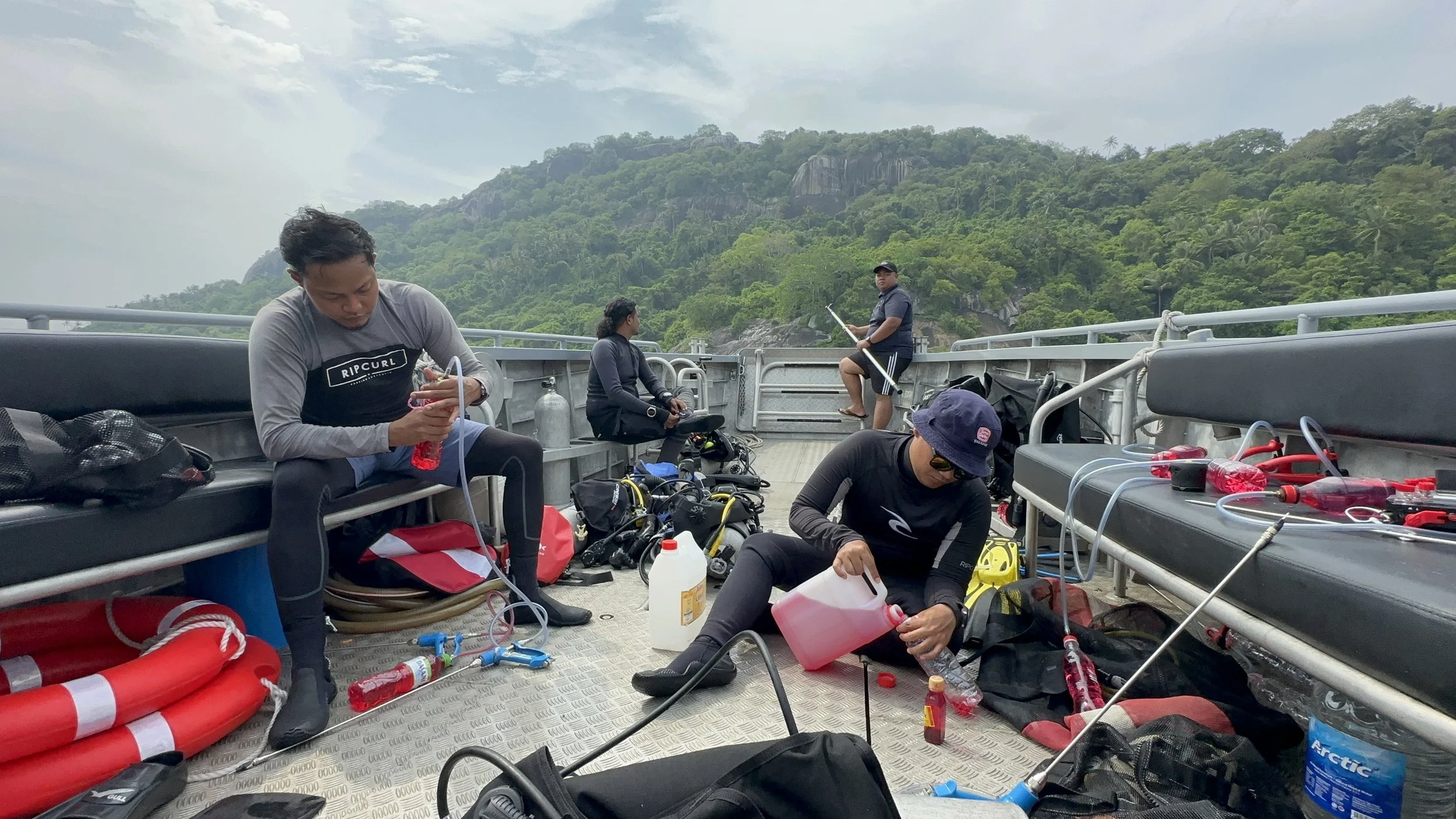Protecting Malaysia’s reefs through community and collaboration, with Nazirul Amin Azmi, Programme Manager at Reef Check Malaysia
Can you imagine spending your working days surveying reefs underwater, leading local conservation projects and working with government agencies in marine protected area management?
That is exactly where Nazirul Azmi’s career path has taken him – from a childhood spent in the Malaysian outdoors, to dedicating his career to protecting that same environment where he grew up.
The early days
Nazirul grew up in a small town near a national park in Malaysia, always surrounded by nature. With a father who loved the outdoors, Nazirul spent his childhood camping in the jungle and swimming in rivers.
“I was always drawn to nature and my earliest memories are of being outside in nature with my father. I was fascinated by nature documentaries like Blue Planet and Animal Planet, but as a teenager, I drifted away from that interest.
At university, I originally studied computer science, but I hated it. After one semester, I switched to a Biodiversity Conservation and Management course – it felt like everything clicked into place.”
Nazirul studied at University Malaysia Terengganu, a coastal university which is heavily focused on marine research. He completed an internship on the Perhentian Islands working with sea turtles.
“That was my first real dip into the conservation experience, patrolling beaches for nesting turtles and working on research projects. One night, I was told I might not see a turtle because it wasn’t peak nesting season – then six turtles showed up at once to nest on the beach! It felt like I was living inside a National Geographic documentary!”
After another season of volunteering and working in a job in outdoor education, Nazirul, heard about a role opening at Reef Check Malaysia. Knowing that the organisation runs dive surveys, he figured getting certified would boost his chances. So he got certified and landed the job.
Surveying coral bleaching. When corals are under stress, they expel the microscopic algae that live in their tissues. This means corals lose their vibrant colours and turn white. Find out more.
Reef Check Malaysia is part of the global Reef Check network, which operates in over 100 countries and territories to monitor coral reef health.
The Malaysia chapter started in 1997 with just a few individuals conducting reef surveys. Over time, it grew into a full organisation, officially registered in 2007, using data to protect reefs from climate change, tourism and pollution.
But conservation isn’t just about collecting data – it’s about action.
Nazirul explained that is why they work closely with local communities, government agencies, and businesses to promote sustainable tourism and marine conservation.
Empowering local communities through citizen science
“One of our key programs is training EcoDivers – certified scuba divers who help us collect reef health data. We’ve trained over 1,000 EcoDivers across Malaysia, and they play a crucial role in our work. Through this program, we have consistently monitored coral reef health every year.
“Since it began, we’ve conducted over 3,500 surveys, collecting more than 15 years’ worth of data and establishing trends in Malaysia’s coral reef health. This makes it a valuable tool for reef management and conservation. In 2024 alone, we monitored more than 300 reef sites across the country.”
“We also run Community Marine Conservation Groups (CMCGs), where we train local islanders in diving and marine conservation. We provide them with diving licenses and teach them practical skills like ghost net removal (fishing nets that have been lost or abandoned in the ocean), coral restoration and reef monitoring.”
Nazirul works with local communities and dive shops to train divers to collect reef health data.
Reef Check Malaysia established its first Community Marine Conservation Group on Tioman island in 2015 – the Tioman Marine Conservation Group (TMCG). Since then, the program has expanded to eight other locations, with some adopted by partner organisations.
Last year, Reef Check Malaysia launched the program in Mersing – the newest addition, training 10 local youth. By the end of the year, they were shadowing in fieldwork and surveys.
“For us, this was a huge milestone – having locals lead conservation efforts is the most sustainable way forward.”
Tackling conservation from local to national levels
Nazirul explained about his role and how it has evolved over time. At first, he led local conservation projects, working with island communities and tourism operators. But recently, he’s moved into a broader role, bridging the gap between state and federal governments in marine protected area (MPA) management (designated areas of the ocean that are set aside for conservation and management purposes).
Nazirul speaking on a UNEP (United Nations Environment Programme) panel on ghost fishing (when lost, discarded or abandoned fishing gear catches and kills marine life. Find out more.)
“In Peninsular Malaysia, MPAs are federally managed, which means local communities and state governments have little say. This can create conflicts and inefficiencies. Our new project aims to bring local communities and state governments into the conversation, ensuring that resources, expertise, and local knowledge are used to improve MPA management. I still work closely with my colleagues on the ground, but I now focus more on policy and coordination, tying everything together.”
Reef Check Malaysia also plays a critical role in rapid response. Last year, during the fourth global coral bleaching event, Nazirul and his colleagues had to immediately conduct reef surveys to assess the damage.
“We also respond to stranded marine animals, ghost nets, and illegal fishing activities. Local communities often call us when they see something wrong, and we drop everything to help. Last year alone, we removed over 5.5 tons of ghost nets from Malaysia’s reefs. Government agencies manage MPAs, but they don’t always have the resources for these urgent tasks – so we step in to fill the gap.”
The Reef Check team respond to incidents of stranded marine animals, ghost nets and illegal fishing activities. Ghost nets are fishing nets that have been lost or abandoned in the ocean. Find out more.
Advice for aspiring conservationists and hope for the future
“Just do it! If you’re interested in conservation, start volunteering. There are so many opportunities to gain experience before committing to a career in the field.
“At the same time, be patient. Conservation is a long-term effort, and change doesn’t happen overnight. It’s easy to burn out, so celebrate the small wins and pace yourself.
“Also, be realistic – conservation work is often romanticised, but it can be physically and emotionally demanding. You have to be committed and willing to work through challenges.”
In Malaysia and beyond, Nazirul hopes to see more community-led conservation, where local people have a real say in managing their environment.
“I believe in collaborative management – where communities, governments and conservationists all work together. No single group can protect the environment alone. We need everyone involved. People often think, I live in a city, what can I do? But every action matters – whether it’s reducing plastic waste, making sustainable choices or supporting conservation efforts.”
Nazirul working with local communities and government agencies on clean up dive.
Moments like this…
When asked what his favourite marine species is, Nazirul said he honestly can’t choose just one! But he described one of his most memorable moments seeing a pod of false killer whales.
“We were traveling between survey sites when they suddenly appeared and swam alongside our boat. It was a rare sighting because false killer whales are usually found in deep ocean waters, not in the shallow areas where we were working. It’s moments like that that make this job so rewarding. Every day, you get to see the incredible biodiversity we’re working to protect.”
Nazirul is proud of his work, knowing that every day, he gets to see the incredible biodiversity we’re working to protect.
Learn more
Find out more about Reef Check Malaysia and connect with Nazirul Azmi on LinkedIn.
